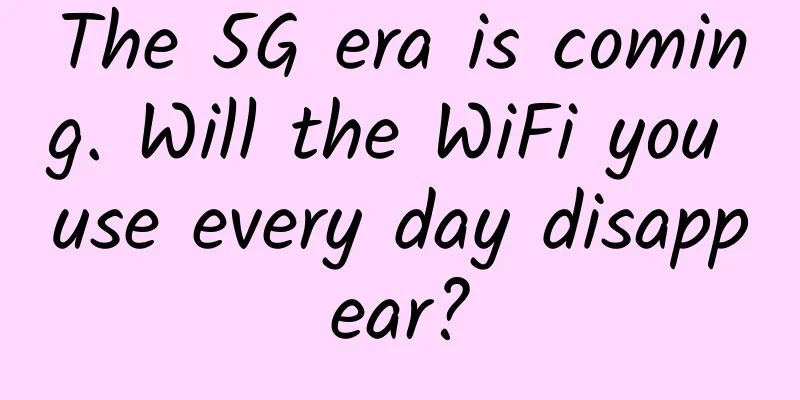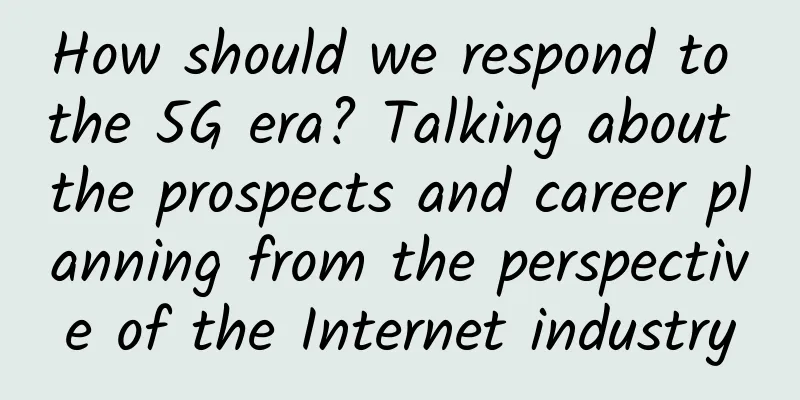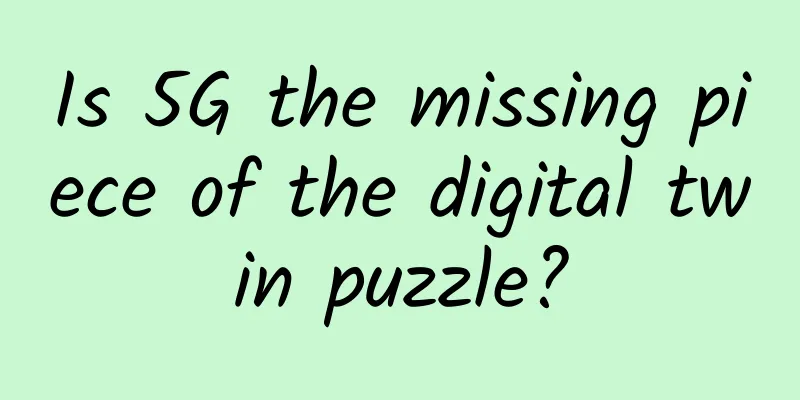The 5G era is coming. Will the WiFi you use every day disappear?

|
When it comes to WiFi, everyone is familiar with it. Especially after the emergence of smartphones, the speed of WiFi development can be described as "rapid", and WiFi coverage is available almost everywhere. So much so that now no matter where people go, the first thing they ask is often "Is there WiFi here?" or "What is the WiFi password?" Indeed, in the past when mobile Internet was still immature, Internet access charges were extremely expensive, so many people would choose WiFi to access the Internet in order to save money. Some people would even use freeloading tools to secretly access the Internet of their neighbors. However, if I say that WiFi may disappear in the near future, would you believe it? Recently, there was a piece of news saying that WiFi will be "killed" by mobile networks. According to British media reports, a recent report by OpenSignal, a mobile data research organization, pointed out that the average speed of mobile networks in 33 countries around the world has exceeded the speed of WiFi connections. With the official commercial use of 5G networks in 2020, this trend will become more obvious, because 5G networks bring high bandwidth and low latency, which have greater advantages than WiFi. WiFi may be completely replaced in the future. Internet speeds are faster than WiFi in more and more countries Macsoor Hanif, chief technology officer of Ofcom (Communications Authority), also stressed that as mobile networks become increasingly powerful, WiFi is gradually being marginalized. Of course, the increase in mobile network speed is not just one of the reasons why WiFi will disappear. Another very important reason is the reduction in Internet access charges. I don’t know if you still remember that in the era of feature phones, data traffic was very expensive when we were surfing the Internet. A few dozen MB of data traffic could cost dozens of dollars. You might watch a few short videos or long articles with pictures and text, and your data traffic would be lost without you noticing. Often, your data traffic would be used up in less than a month, and many people often needed to purchase data overlay packages to surf the Internet. Until a few years before the advent of smartphones, data traffic was still very expensive, so many people would choose to look for WiFi everywhere to access the Internet, and various free Internet access tools would grow rapidly. However, with the gradual increase in the intensity of domestic Internet speed and fee reforms in recent years, mobile Internet access charges have also been declining. In addition, there are various Internet package cards, such as Tencent Dawang Card, Xiaomi Mifen Card, Ali Dawang Card, etc. As long as you use these package cards, you can use certain limited mobile phone software without limit. At the same time, with the large-scale deployment of base stations, the coverage of 4G signals everywhere makes it more convenient for us to access the Internet. Therefore, compared with the past, even if we don’t use WiFi, using mobile networks can be faster and cheaper. In this case, many people are too lazy to connect to WiFi, because most people usually use only a few mobile apps. If you can use them unlimitedly, why bother to use WiFi? Moreover, the speed of some WiFi networks is not even as fast as that of 4G mobile networks. If there are many people using it, it will be as slow as a snail, which provides a very bad experience. What's more, public WiFi itself has risks. Some public WiFi requires you to register various personal information before you can access the Internet, which may cause information leakage. There are even some people with bad intentions who deliberately hack into your phone and steal information and property when you are not paying attention. With the emergence of risk awareness, many people have gradually stopped connecting to public WiFi. … It seems that with the improvement of mobile network speed and the reduction of Internet charges, it is possible that WiFi will no longer be needed in the future. Macsoor Hanif, chief technology officer of Ofcom, also gave advice to the WiFi industry: either upgrade to 5G or wait to be marginalized. What do you think about this? Do you think WiFi will disappear in the future? |
<<: Easy to understand: understanding the "weakness" and "slowness" of mobile networks
>>: Comprehensive popular science about "Internet of Vehicles"!
Recommend
What is the difference between HTTP and RPC?
HTTP (Hyper Text Transfer Protocol), also known a...
Best Practices for Stream Computing Processing with Flink on Zeppelin
Content framework: Big Data Overview Flink Learni...
Can 5G drive innovation in the smart home market?
[[348075]] We still have a long way to go before ...
SDN plays an important role in 5G networks
In many ways, 4G networks are already falling beh...
Why is distributed networking an emerging trend?
The mass adoption of the Internet can be attribut...
Facebook: An innovative data center network topology
[[126753]] Aerial view of Facebook's data cen...
DiyVM: 50 yuan/month-2GB/50GB/5M/Hong Kong CN2 line
DiyVM is a brand of Hong Kong Ruiou International...
BGPTO: Japan/Singapore CN2 GIA server $64/month, E3-1230v3/16GB/480G SSD/10-100M bandwidth
It's been a while since I shared information ...
OneTechCloud: 20% off on all VPS monthly payments starting from 22 yuan/month, Hong Kong CN2&CMI/US CN2 GIA&9929/High Defense optional
OneTechCloud (Yikeyun) offers a 20% discount code...
Internet innovation pales in comparison! Protocols are the future!
Today, the Internet is very prosperous, and mobil...
Tencent Cloud Lightweight Cloud Server Existing Users Free Upgrade, No Price Increase for Additional Usage
Tencent Cloud, a major domestic cloud server manu...
The number of 5G commercial networks has reached 200 worldwide, and 1,257 5G terminals have been released
According to the latest update from the Global Mo...
Hundreds of millions of "5G users" have subscribed to packages but have not yet accessed the Internet
The penetration rates of 5G packages for China Te...
6 tips to avoid automation disasters
Senior software engineer Benjamin Willenbring was...
7 Industries That Will Be Revolutionized by the Internet of Things
What kind of revolutionary impact will the Intern...









